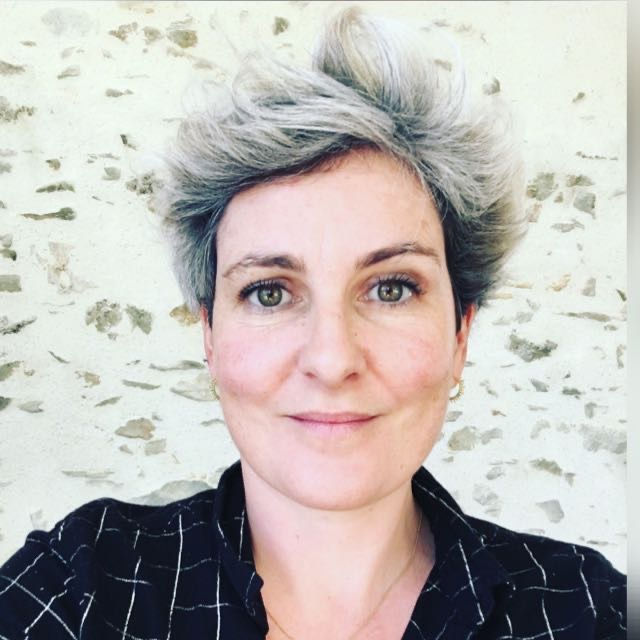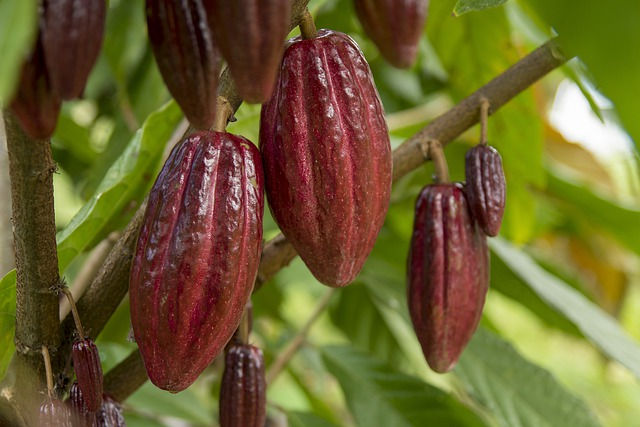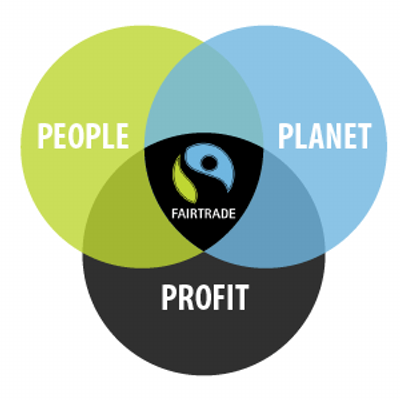Eat chocolate, save the planet... Revisited.
- Science-by-Trianon

- Apr 2, 2021
- 4 min read
Updated: Aug 29, 2021
Easter is upon us and with that comes (for theological reasons far beyond our comprehension) a torrent of chocolate Easter bunnies, chocolate Easter eggs, and chocolate Easter other things.
You like chocolate and feel guilty about it?
Don’t!
Buy less but better quality.
Challenge your favourite brand
Avoid too much packaging!

This chocolate egg is full of chocolate pralines. It is home made by a Belgian Chocolatier named "Alex & Alex" - You want it? Contact him here
Hence, we write an article about the environmental and social aspects of chocolate, in particular its production.
"Hang on!", our avid readers may say at this point, "haven't you done that before?", and yes, we have, there has been an article about chocolate in 2020.
You can read our previous article by clicking here:
"Eat Chocolate, Save the planet"However, we are not just filling old wine into new skins here.
In fact, we have contacted Marie-Amélie Ormières, an expert in chocolate sustainability.

Marie-Amélie Ormières raised some issues with our previous article.
Most notably, she pointed out that while our mentioning of 24.000 litres of water being required for the production of 1 kg of chocolate [1] may factually be correct, this number doesn't carry much weight since cocoa, the basic ingredient of any chocolate, is grown in wet climates and all that water comes from rain.
She points out that artificially irrigated cocoa plantations are extremely rare and that this is due to the fact that more than 80% of the cocoa worldwide is produced by very small farms which haven’t got the means to install irrigation systems.
We stand corrected.
That does not mean that chocolate doesn't have an environmental footprint, but it is more associated with the fact that the raw materials (both cacao and cane sugar) are shipped half-way around the globe from the producers to the consumers.
But let's introduce Marie-Amélie Ormières properly.
After obtaining her degree in business administration from the Ecole Supérieure du Commerce Extérieur in Paris [2] she entered the world of fair-trade products [3] in general and fair-trade cocoa/chocolate in particular.
She worked along the entire supply chain, advocating and educating the various players involved, from the producers to the consumers.
After a while she realised that in order to change the business you have to be part of the business and she joined Puratos, a B2B chocolate producer in Belgium [4] where she successfully changed the way this company sourced their raw materials into a more sustainable manner.
Now she is working as an independent consultant in the cocoa business.
Due to climate change we see surprising developments like countries traditionally perceived as 'cold' taking up agricultural activities traditionally associated with 'warmer' countries.
For example, there are now vineyards in England.[5, 6]
We asked Marie-Amélie Ormières:
Do you see or foresee similar developments in the world of cocoa?
Marie-Amélie Ormières:
Climate change does indeed have an impact on cocoa production as it changes seasonal precipitation patterns.
Cocoa is a plant that tolerates only a fairly narrow range of rainfall.
In case of insufficient rainfall, the pods don't develop, in case of an overabundance of rain, the pods are likely to attract mould.

Thus changing rainfall patters make harvesting cocoa very unpredictable for farmers and producers alike.
Whether areas more northerly (or southerly) of the equator could become suitable for cocoa farming is something I have got no information about.
Trianon Scientific Communication:
Could you briefly outline Fairtrade?

Marie-Amélie Ormières:
Fairtrade is one of several certification schemes for agricultural products, such as bananas, coffee, tea, and cocoa.
The main point of Fairtrade is to ensure a fair price for the farmers.
This is known as the 'minimum price, i.e. a price that is not subject to the stock exchange.
This means, even if the price for cocoa drops below a certain number, the farmers still get the agreed price for their produce.
If the stock market price is higher they get more than the minimum price, but the minimum price is guaranteed.
This is the main aspect.

However, there are environmental and social criteria that have to be met for a farm or a product to be allowed to bear the Fairtrade seal as well, cf. Profit, Planet, People!, and these criteria apply to all players along the entire supply chain.

Trianon Scientific Communication:
To conclude, we would like to ask you our traditional 'magic wand question'.
If you had a magic wand what would you do with it, in particular in the world of chocolate?Marie-Amélie Ormières:
I would wish for the consumers to become more knowledgeable and careful regarding their choices and purchases.
In a nutshell, buy perhaps less, but definitely buy better quality!
Consumers pay a price for chocolate that keeps cocoa farmers under the poverty line.
I would therefore use my magic wand to make a higher proportion of the value chain arrive at the farmers.
Another point is that
I would wish more consumers to challenge their preferred brands/producers of chocolate, to ask them what they do to support the farming communities they rely on.
What with social networks it has never been simpler to do that then now.
I would also love to see the big chocolate producers to invest more in social projects in the cocoa farming communities so as to empower the farmers and their families and to enable them to lead productive and rewarding lives.
Some of the big producers do invest in such schemes already but more needs to be done.
Trianon Scientific Communication:
Thank you very much for your time and your interesting insights.So, if after reading this article you would like to know more about chocolate production and sustainability we would encourage you to visit the website of the International Cocoa Organisation (ICCO). [7]
If you are specifically interested in what they have to say regarding sustainability, you will find the relevant page here : [8]
And with that we would like to wish you Happy Easter!

[1] https://waterfootprint.org/media/downloads/Hoekstra-2008-WaterfootprintFood.pdf, last accessed 2021.03.24
[2] http://www.esce.fr/, last accessed 2021.03.24
[3] http://www.fairtrade.net/, last accessed 2021.03.24
[4] https://www.puratos.com/,, last accessed 2021.03.24
[05 ] https://www.countryliving.com/uk/travel-ideas/staycation-uk/g22884319/best-vineyards-uk/, last accessed 2021.03.24
[6] https://londonwinecompetition.com/en/blog/insights-1/wine-regions-of-the-united-kingdom-121.htm, last accessed 2021.03.24
[7] https://www.icco.org/, last accessed 2021.03.24
[8] https://www.icco.org/economy/#sustainability, last accessed 2021.03.24









Comments